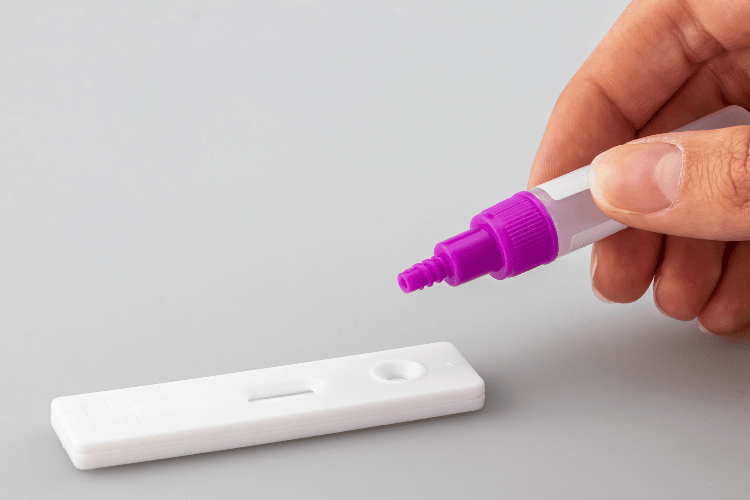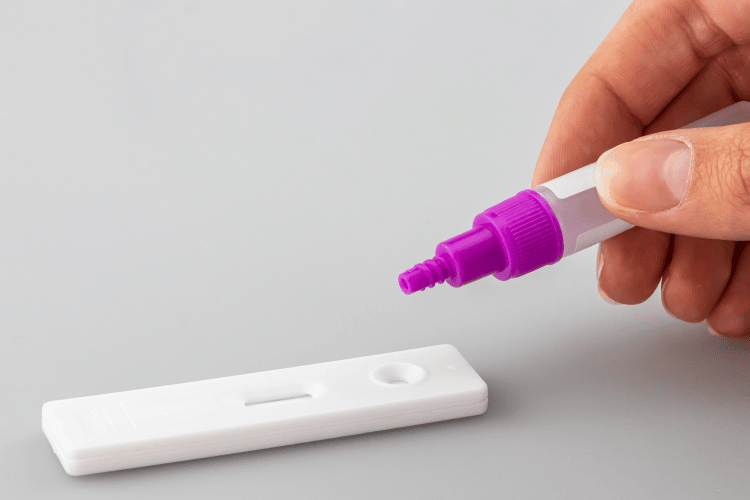
Healthy Mental Health Habits to Reduce Emotional Distress during COVID-19
By Erin Wiley, MA, LPCC
Since COVID-19, there is an increase in emotional distress surrounding virus-related stressors: struggling to manage distressing feelings caused by social isolation, family members cooped up together, the anxiety of the unknown, the loss of freedom and events that are meaningful to people (prom, graduation, weddings, funerals, church services, and more).
Mentally people are struggling with stay-at-home orders because it is simply not natural to stay in your home for months at a time with little physical activity and social interaction. Humans are wired for connection with others. Being forcibly separated from the people we are closest to is emotionally difficult.
Having to be apart from other people is emotionally painful. People are not meant to exist all alone. Even simple interactions with strangers are research-proven ways to improve our happiness.
Currently, everyone I have spoken with is experiencing big mood swings. They might be feeling ok one day, even positive, and then later the same day feeling helpless and hopeless. In one moment, you may be having a nice family interaction, and then minutes later you remember that your child does not get to graduate in a traditional ceremony as you have always imagined.
You are feeling productive at work, but then your child interrupts and needs help with online schooling. There are so many ups and downs in each day that people are reporting feeling emotionally exhausted.
To help counter these feelings of distress, let us get back to the basics of self-care. With stay-at-home orders, there is an opportunity to embrace simple disciplines to help change our health and happiness that lasts post-COVID-19. See this stay-at-home as an opportunity to toss in unhealthy habits for healthy and lasting ones to come out of this a healthier, better you.
By adopting healthy coping skills, people can find greater contentment and peace. Creating and implementing new schedules or sticking to familiar routines can give people a sense of stability and security, thus reducing anxiety.
Finding ways to connect with others in meaningful ways electronically can reduce feelings of isolation and loneliness, thus reducing depression symptoms. Practicing mindfulness can lead us to feel grateful and encourage greater levels of happiness.
Table of Contents
7 Healthy Mental Health Habits Tips to Create & Help Stay on Track
Self-Awareness with Mindfulness
Developing greater self-awareness by practicing mindfulness is a great first step for people looking to improve their mental and emotional health. As we become more mindful, learning to identify our emotions and process them is the single most important skill we can master.
It dramatically affects our ability to regulate ourselves in times of conflict and gives us a greater ability to affect positive change. Having increased self-control means that we can choose healthier responses in stressful situations, thus resolving conflict and getting our needs met, all while maintaining relationships that are most important to us.
Stick to a Schedule
To preserve sanity and reduce stress during this time, stick to a schedule for sleep, meals, work, and free time. Many of my patients have found new freedom working from home, but that has resulted in staying up later, eating more junk food, drinking more alcohol, and sleeping in later than normal.
Each of these things is disruptive to our bodies, and to our minds. I have been encouraging patients to return to pre-social isolation schedules as much as possible and to be mindful of over-indulgence. Getting back to the basics: strong sleep routines, healthy eating habits, and engaging in light exercise are the three most important ways we can re-center during this time of stress and uncertainty.
Take Small Bites
Often people feel discouraged from the start – as if they are too unhealthy or are too far from a goal they have – to even begin trying to change their behavior. Making small changes and, over time increasing the intensity, frequency, or quantity needed to achieve a long-term goal is the way to achieve the desired result.
Breaking a goal down into smaller, more manageable pieces can also be significant in helping us reframe the challenge ahead.
Begin with Intentionality
Having an intention and a plan for the day helps keep us focused. We can decide to live in a purposeful place of positivity and kindness. Taking some time each morning to be reflective and think about how we want our day to proceed can be greatly beneficial.
Move your Body
From dancing with your kids to walking your dog, to continue training for your virtual 5k, moving our bodies is a simple way to feel alive again. Moving your body changes your mood.
Find an Accountability Partner
To help stay on track with new healthy mental health habits, I suggest finding a mentor or an accountability partner who is invested in your success and wellness. Asking them to hold you accountable can be an effective way to stay the course when it comes to developing new healthy habits.
Keeping track of daily and weekly successes in a habit-tracking app calendar is a tactic that many find useful for creating healthy habits.
Reach Out
For those who are struggling, it is important to reach out. You will not be the only one. Sharing our emotions right now, grieving our losses, and talking thigh them with others are powerful tools to help move us through this difficult time.
Engaging in these healthy and connecting habits are ways we can re-center during this time of stress and uncertainty; however, the best advice I can give at this time is to be gentle with yourself and others. Do not emotionally beat yourself up for gaining a few pounds or losing your cool about your laptop malfunctioning.
Remember that this is an unprecedented global crisis, and everyone is struggling to mentally cope in one way or another. You do not need to be perfect…you just need to survive it the best you can.
Take care of yourself as a parent would. Taking care of yourself physically and emotionally is super important to better manage the stress of these huge life changes. Be kind to yourself and give yourself some space to just get by instead of achieving and accomplishing something. “Good enough” is better than aiming for perfection during these challenging times.






